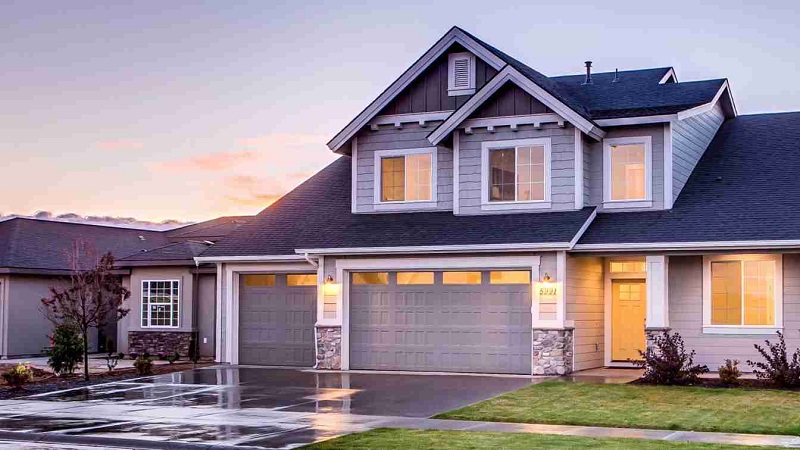How do windows affect energy efficiency?

Windows are a crucial component of a building’s envelope, significantly affecting energy efficiency. While they provide natural light and ventilation, they also pose challenges regarding heat gain, heat loss, and prevailing energy consumption. We will explore how windows affect energy efficiency in residential and commercial settings. We will delve into the elements that influence a window’s energy performance, the diverse sorts of energy-efficient windows unrestricted, and the benefits of investing in windows that enhance energy efficiency.
Understanding Window Performance:
To grasp how windows influence energy efficiency, it’s essential to comprehend their performance characteristics. Windows possess several key properties that dictate their energy performance. The U-factor measures a window’s insulation capability, with lower values indicating superior insulation and reduced heat transfer. Solar Heat Gain Coefficient (SHGC) quantifies the amount of solar heat penetrating through a window; lower SHGC values signify reduced heat gain.
Visible Transmittance (VT) gauges the quantity of natural light admitted into space, with higher VT values favoring more daylight. Air Leakage indicates how much air can traverse a window, with lower air leakage rates enhancing energy efficiency. These properties determine a window’s impact on heat gain, heat loss, lighting, and indoor air quality.
Heat Gain and Loss
Windows can significantly impact a building’s energy efficiency by influencing heat gain and loss. In hot climates, solar heat gain through windows can increase cooling costs. Energy-efficient windows with low SHGC values can reduce this heat gain, helping to keep indoor spaces cooler and reducing the reliance on air conditioning. Conversely, in cold climates, windows can contribute to heat loss. Energy-efficient windows with low U-factors help minimize this heat loss by providing better insulation. Improved insulation keeps indoor spaces warmer and reduces the demand for heating systems, leading to energy savings.
Daylighting and Artificial Lighting
Windows plays a vital role in providing natural light, reducing the need for artificial lighting during daylight hours. Maximizing daylighting through strategically placed and energy-efficient windows can significantly reduce electricity consumption and associated costs in both residential and commercial spaces. Energy-efficient windows with high VT values allow more natural light to enter, enhancing visual comfort and reducing the reliance on artificial lighting. Additionally, daylighting has been shown to have positive effects on occupants’ well-being and productivity.
Solar Control and Shading
Solar control features on windows, such as low-E (low-emissivity) coatings and reflective films, help regulate the amount of solar heat that enters a building. These features can lessen the need for air conditioning and contribute to lower energy consumption in warm climates. Shading devices like blinds, shades, or awnings can further enhance energy efficiency by reducing solar heat gain during hot periods and stemming heat loss in colder seasons. Properly designed shading solutions can complement the performance of energy-efficient windows.
Ventilation and Indoor Air Quality
Windows also influence indoor air quality and ventilation, which in turn can impact energy efficiency. Operable windows allow for natural ventilation, helping to improve air circulation and reduce the need for mechanical ventilation systems. This can lead to energy savings, especially in mild weather conditions when windows can be opened to allow fresh air to flow. However, in climates with extreme temperatures or poor outdoor air quality, relying solely on operable windows may not be practical. In such cases, energy-efficient windows with good insulation properties can help maintain a comfortable indoor environment without excessive reliance on mechanical heating or cooling.
Noise Reduction
While not directly related to energy efficiency, the sound insulation properties of windows can influence occupants’ comfort and well-being. Energy-efficient windows with better insulation often provide improved noise reduction, assembling a quieter indoor environment. Reduced noise can contribute to a more comfortable living or working space, enhancing overall satisfaction and productivity.
Benefits of Energy-Efficient Windows:
Investing in energy-efficient windows offers an array of advantages. Lower energy bills are a prominent benefit, as these windows reduce heating and cooling costs over time. Enhanced comfort is another key perk, stemming from better insulation and decreased heat gain or loss. This results in a more pleasant indoor environment throughout the year. Furthermore, energy-efficient windows contribute to environmental sustainability by curbing greenhouse gas emissions via reduced energy consumption. Elevated property value is a bonus, as these features can attract environmentally conscious buyers and increase resale prices. Lastly, energy-efficient windows foster health and well-being through improved indoor air quality, abundant daylighting, and noise reduction, ultimately enhancing building occupants’ overall quality of life.
Windows have a profound impact on energy efficiency in both residential and commercial buildings. Investing in energy-efficient windows is a discerning decision for homeowners and building owners looking to enhance the overall energy performance of their properties. These windows contribute to lessened energy bills and create more comfortable, sustainable, and healthier living and working spaces. With the increasing focus on sustainability and energy conservation, energy-efficient windows have become paramount to modern building design and construction. If you’re contemplating enhancing your home’s energy efficiency and aesthetics, explore the benefits of window replacement in San Antonio to enhance comfort and curb appeal.